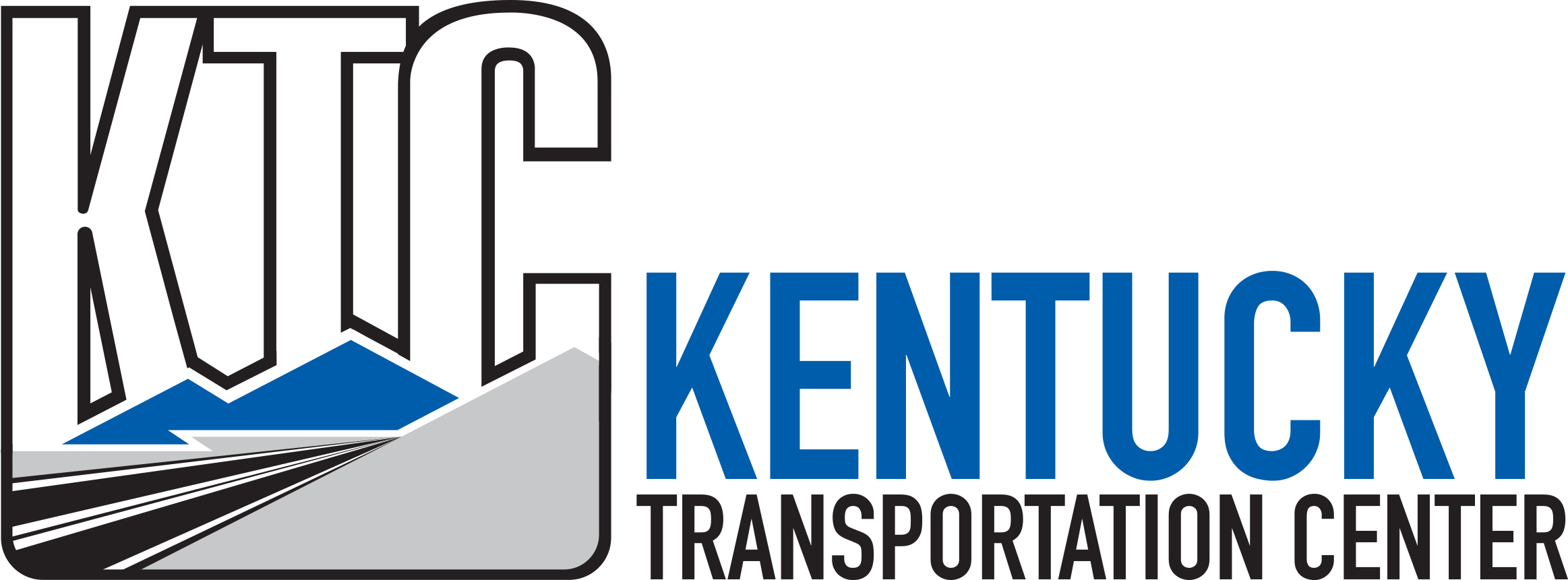Abstract
Kentucky, like other states, is facing fiscal challenges in providing expanding public services demanded by citizens. One danger of constrained fiscal resources and shortsighted political horizons is the tendency to neglect the investment and maintenance of long-term infrastructures like highways. The Kentucky road fund protects against these dangers by providing earmarked resources for the state's roadways, insuring that basic infrastructure needs are met. However, evasion of road fund revenues decreases the funds available to meet the needs of Kentucky's transportation infrastructure. For these reasons, the Kentucky Transportation Cabinet is interested in developing policy recommendations intended to mitigate evasion of road fund revenues.
This report compliments the final report "The Motor Fuel Tax Evasion Issue in Kentucky, 1996" (KYSPR 93-153) which identifies potential concerns in the nature and causes of road fund tax evasion. This current study constitutes an informal report that is complimentary to research report KTC-96-16. Moreover, it provides additional detail regarding the legislative action that addresses fuel tax evasion in the southern region. This report also develops estimates of the revenues lost through evasion in vehicle registration and licensing in the Commonwealth.
The Federal Highway Trust and the Kentucky road fund were established to provide earmarked resources for maintaining and building federal and state roadways. Two major sources of the revenues for the Kentucky road fund are the motor fuels tax and vehicle licensing and registration fees/taxes.
Evasion of these revenues diminishes the resources available to maintaining and building state roadways. There are three studies that have estimated the fuel tax revenue lost through evasion. The U.S. Department of Transportation estimated that evasion of the gasoline tax is between three and seven percent of the gallons consumed nationally, while diesel fuel tax evasion is 15 to 25 percent of gallons consumed nationally. Evidence of fuel tax evasion is provided in the Council of State Governments (CSG) study that estimated nearly 1.2 billion dollars of aggregate state fuel tax revenue was evaded in fiscal year 1993. Estimates of the fuel tax evasion occurring in Kentucky are provided in the KTC final report The Motor Fuel Tax Evasion Issue in Kentucky (1996). This study estimates that up to 20 million dollars of Kentucky fuel tax revenue was potentially evaded in fiscal year 1993.
Estimates of revenue lost through evasion of vehicle registration and licensing are less common. The CSG report estimated that between 421 to 654 million dollars of aggregate state revenue from licensing and registration were evaded in fiscal year 1993. Similar analysis is applied to obtain the evasion losses of Kentucky vehicle registration and the associated ad valorem taxes as reported in Appendix B. The estimation predicts that over 239 thousand vehicles were unregistered in Kentucky in 1994, resulting in a road fund revenue loss that approach 50 million dollars.
Report Date
6-1997
Report Number
KTC-97-14
Digital Object Identifier
http://dx.doi.org/10.13023/KTC.RR.1997.14
Repository Citation
Denison, Dwight V.; Hackbart, Merl M.; and Eger, Robert J. III, "Legislation Review and Recommendations to Reduce Evasion of Kentucky Road Fund Revenues" (1997). Kentucky Transportation Center Research Report. 482.
https://uknowledge.uky.edu/ktc_researchreports/482


